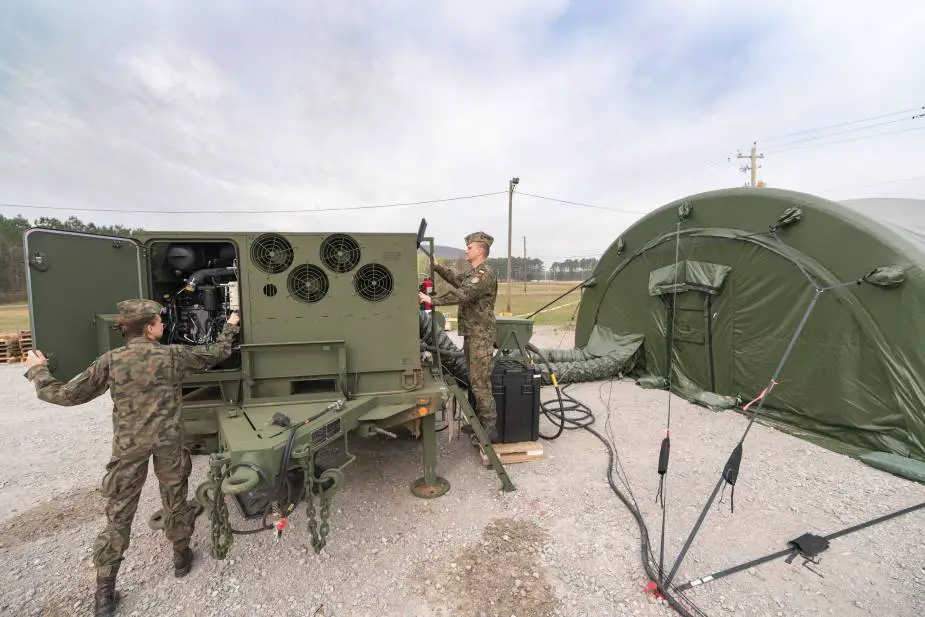Breaking news
Northrop Grumman fields Integrated Battle Command System training for Polish Army.
Northrop Grumman has launched a trainer to teach Polish soldiers how to use the Integrated Battle Command System (IBCS). The system, delivered two years ahead of schedule, will enable Poland to quickly field the transformational integrated command and control capabilities of IBCS. Poland is the first U.S. ally to field IBCS.
Follow Army Recognition on Google News at this link

Polish soldiers prepare for IBCS training at Redstone Arsenal, Alabama. Northrop Grumman’s Air Defense Reconfigurable Trainer provides the infrastructure to teach soldiers how to use IBCS in both group and self-paced training environments (Picture source: U.S. Army)
“Coupling our innovative individual skills trainer with IBCS creates a complete package for the U.S. Army and allies to prepare them for tomorrow’s multi-domain battlefield,” said Rebecca Torzone, vice president and general manager, combat systems and mission readiness, Northrop Grumman. “With this IBCS package, Poland is modernizing their air and missile defense forces to enhance the safety and security of their country for years to come.”
Known as Air Defense Reconfigurable Trainer (ART), the Northrop Grumman training system hosts a wide range of materials and is configurable to support multiple missions. Built using training material developed for the U.S. Army’s new equipment training, ART allows the end user to augment in-person training as well as conduct self-paced sustainment training. This accelerates training speed and efficiency while simultaneously reducing potential cost.
Northrop Grumman field service representatives traveled to Poland and completed the installation of ART at the Polish air defense school. Train-the-trainer events were also underway at Redstone Arsenal, Alabama allowing Northrop Grumman’s training capability to aid Polish soldiers in their understanding of IBCS.
IBCS implements a modular, open and scalable architecture that is foundational to integrating available assets in the battlespace, regardless of source, service or domain, onto a common fire control network. It extends the battlespace by disaggregating sensors and effectors, and allows for the efficient and affordable integration of future systems. By enabling this high level of network integration, the warfighter is given unprecedented time to make accurate decisions.
Defense News July 2023


























